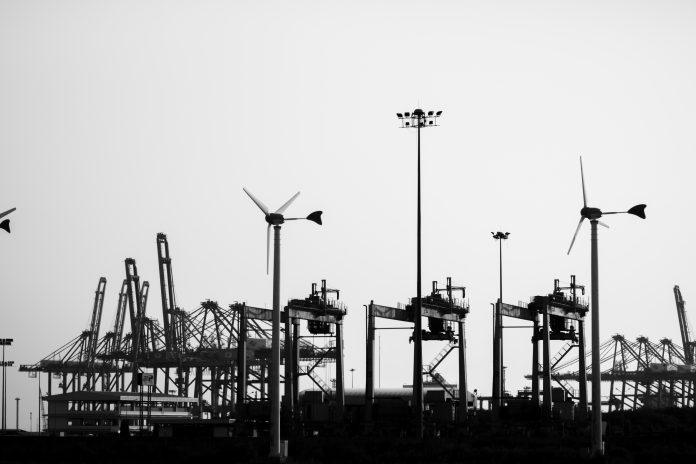Our climate is global and the challenge of preventing catastrophic environmental damage will require the cooperation of all nations – but is it too late to prevent climate change?
Whilst the West is actively and successfully reducing our CO2 emissions by shifting towards renewables, not everyone is singing from the same hymn sheet. Countries like China and India both signed onto the Paris Climate Agreement and touted their green credentials on the global stage, but in reality their actions tell an entirely different story.
Despite their public declarations, China and India never actually bought into their energy and economies being based on carbon-free renewables. Both countries will continue importing, exporting, coal, oil, and natural gas from countries that are authoritarian, human rights abusers such as Saudi Arabia, Russia, Iran, Venezuela, Iraq, Nigeria, Angola and Algeria.
China, India and fossil fuels
Western nations wrongly believe China and India will stop using fossil fuels, particularly coal. China and India have a combined 250 billion tonnes of proven coal reserves, which at current rates of demand will last over 100 years. Coal, whilst being environmentally unfriendly is scalable, reliable, cost effective to the end user, and has the best energy density of all fossil fuels or renewables available.
China is currently building hundreds of new coal-fired power plants. To counter China, India is adding 446 new coal fired power plants to add to their existing 589 coal fired power plants, bringing their total to 1,036.
In September 2019 China opened the “Haoji Railway” which is a 1,127 mile long railway dedicated to transporting coal from Inner Mongolia and Shanxi in northern China to the southern provinces. These are high speed trains, which can travel at 75mph with a full load. This railway replaces the existing land and sea transport routes for coal and reduces the transportation time from 20 days to 3 days. At a cost of an estimated $30 billion dollars, this railway will transport more than 200 million tonnes of coal each year and is a clear indicator that the long term intentions of China in terms of energy, include coal. Preventing climate change is not a priority with this railway.
China’s coal power capacity is currently estimated at 1,250 GW. To put this into context, this is equivalent to 350,000 offshore wind turbines operating at maximum speed, 24 hours a day, 365 days a year. However, according to the European Wind Agency Association, “Wind turbines start operating at wind speeds of 4 to 5 metres per second and reach maximum power output at around 15 metres/second. At very high wind speeds, that is gale force winds of 25 metres/second, wind turbines shut down. A modern wind turbine produces electricity 70-85% of the time, but it generates different outputs depending on the wind speed.
Over the course of a year, it will typically generate about 24% of the theoretical maximum output (41% offshore). This is known as its capacity factor. The capacity factor of conventional power stations is on average 50%-80%. Because of stoppages for maintenance or breakdowns, no power plant generates power for 100% of the time”.
Given this statement, the number of offshore wind turbines actually needed to match China’s energy output from coal, would be nearer to 800,000. Yes that’s right, eight hundred thousand offshore wind turbines and we currently have less than 5,000. We are set increase this by around 50% over the next 10-15 years, which will bring us up to the grand total of around 10,000 offshore wind turbines.
So whilst the UK and many other nations are investing huge amounts of taxpayer money into renewables like offshore wind, our so called partners in the Paris Climate Agreement, are massively expanding their energy capacity using coal.
This means we have a significant economical disadvantage to China, because practically everything in terms of economical output requires energy and if our energy costs are significantly higher than China’s, it makes us very uncompetitive on the world stage at a time we are on the verge of leaving the EU.
The dual battle for the climate
In essence we are fighting a battle we cannot win on two fronts, an economical battle and an environmental battle. To date, the only nations who have entered into a legally binding 2050 net zero carbon targets are the UK, France, Sweden, Hungary, New Zealand, Denmark, Japan and South Korea.
Clearly missing from this list are the world’s top four producers of CO2 emissions, these being China, USA, India and Russia, who are clearly prioritising their economic future over attempting to prevent climate change for the environmental future of the planet.
Even if the all nations, who have signed up to a legally binding and very ambitious 2050 net zero carbon target, actually hit their targets, all of these reductions collectively will be dwarfed by the increases in CO2 over the same time period by just China and India alone.
As stated in the first sentence of this piece “Our climate is global and the challenge of preventing catastrophic climate change will require the cooperation of all nations”, so given this as a prerequisite for achieving the goals we have set, surely it makes sense to focus on some kind of enforcement mechanism for all nations, before a handful of nations commit huge sums of taxpayer money to a global challenge that will simply not succeed without the cooperation of all?











